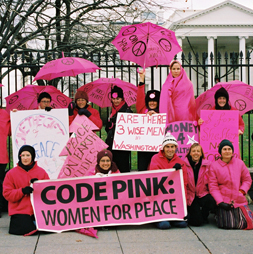- About
- Topics
- Picks
- Audio
- Story
- In-Depth
- Opinion
- News
- Donate
- Signup for our newsletterOur Editors' Best Picks.Send
Read, Debate: Engage.
| May 21, 2015 | |
|---|---|
| topic: | Women's rights |
| tags: | #American Express, #brand, #feminism, #Mindy Kaling, #NFL, #sexism and racism, #Super Bowl |
| located: | USA |
| by: | Vanessa Ellingham |
If you watched the Super Bowl this year, but even if you didn’t, you will probably have heard that feminism presented front-and-centre in many of the advertisements broadcast during the game.
High-profile television commercials are often launched during the Super Bowl, thanks to the broadcast’s extremely high viewership and broad demographics.
An ad for American Express credit card memberships featured American actress Mindy Kaling. Scenes of Kaling rising early to meet her busy schedule as a television actress, writer and producer played out with her voiceover describing feeling marginalised by sexism and racism in her industry (Kaling has Indian heritage). The message was about overcoming the seemingly impossible – Kaling says, “I was told they don’t put girls who look like me on TV. I guess they can’t say that anymore.”
Anyone who has seen Kaling act or heard her speak will know that her usually bubbly, high-pitched chatter is hardly ever reduced to such a low tone, delivered with such sincerity. When I first heard her say this, I choked up. It was genuinely moving.
But what does Kaling’s unlikely rise to a starring role on her own TV show have to do with credit cards? Not a lot. Increasingly advertisers are capitalising on the emotional pull of stories like Kaling’s to connect themselves with the popular discourse. A woman who, not so long ago, would have been seen as unlikely to make it in Hollywood is now the face of a mainstream product.
The American Express ad was just one of a long list making use of feminism’s increasing popularity during the much-coveted advertising slots during the 2015 Super Bowl. Sanitary hygiene brand Always called out casual sexism with their #LikeAGirl commercial, while both Dove and Nissan featured Dads playing prominent parenting roles in their children’s lives in a clear nod to gender equality. A public service announcement about domestic violence aired in place of an NFL commercial during the league’s regular allotted time.
Empowertizing
Feminist messaging in advertising is hardly a new phenomenon – Dove Real Beauty has been leading the charge for more than a decade with ads encouraging women to see past conventional beauty standards (while still managing to sell truckloads of cosmetics). Criticism of this double standard has been running almost as long. But seeing so many of these messages in such a male-dominated space is certainly a new experience. The question we need to be asking is: do these messages actually help anyone?
The use of popular messaging in advertising is what Andi Zeisler calls ‘empowertizing’. She argues that while connecting empowering messages with ads may satiate our collective desire for cultural shifts, for brands it is actually just an easy way out of creating any real social change.
In many cases, it is unclear what brands associated with this messaging are actually trying to sell. They put their product (and sometimes even their brand) on the back burner in the hope of going viral with an inspiring message. #LikeAGirl is a good example: the video had more than 10 million views just four days after its release, but its messaging wasn’t part of a campaign to promote a new or existing product. They were simply saying, “we care about your daughter, so buy our products for her.”
Return on investment
At this point you might be wondering whether advertisers are taking a big risk by jumping on bandwagons and hoping consumers will learn to associate these causes with their brands. Not so. Women are more active on social media than men, so creating campaigns with viral content and feminist messaging is simply giving consumers what they want, with brands reaping the rewards in real time. In the case of the Super Bowl, 46% of viewers are female so advertisers would be stupid not to target them there. As Kat Gordon at Adweek put it, “ads with female appeal = best return on $4 million price-tag.”
Sadly, spending $4 million on advertising with a social message isn’t the same as spending $4 million on supporting victims of domestic violence, or gender equality measures. It’s all about the brand’s image. Advertisers might provide the snazzy messaging, but when it comes to social change, they fail to deliver.
What changes?
While the NFL might have lent its allotted advertising time to a domestic violence PSA this year, it was clearly a distraction from the organisation’s failure to step up in light of the Ray Rice incident. The NFL has not changed its domestic violence policies since it was criticised last year for not adequately punishing Rice after he assaulted his partner.
Following the Super Bowl, the Deadspin reported: “The NFL has changed, but mainly in ways that promote its image, allow it to work with brands, and don't really do much to help anyone on the front lines of working with domestic-violence victims.”
The good news is that by connecting themselves with social messages, brands and advertisers have created an opportunity for consumers to hold them to account. “How much of its annual profit is Always diverting to girls’ empowerment programs?” asks Ann Friedman. “What sort of paternity-leave policies are in place at Dove and Nissan — and do those companies support better federal family-leave laws for all parents? How is the NFL changing its policies, not just its messaging, toward players who abuse their partners?”
“You wanted the attention of viewers like me? You got it,” writes Friedman. “But now that you have it, don’t be surprised to hear that I have a few follow-up questions.”
Consumers are becoming more and more interested in the people and stories behind their purchases. Advertisers who use social messaging should expect today’s consumers to hold them to account.
By copying the embed code below, you agree to adhere to our republishing guidelines.

